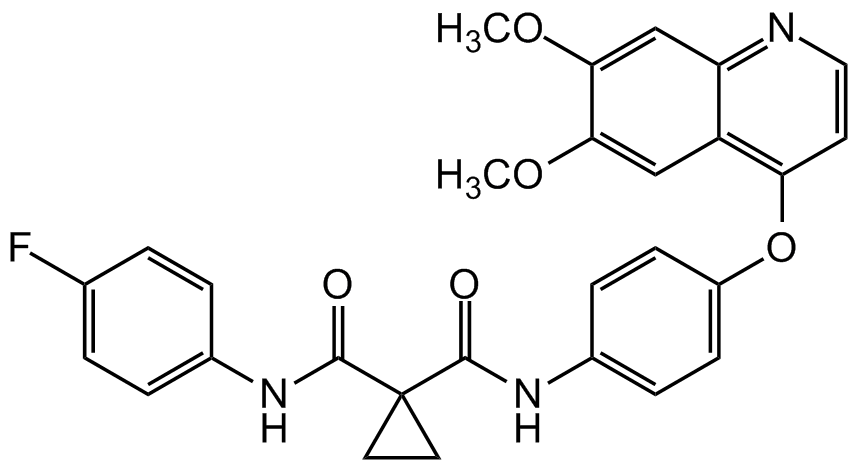
Chemical Structure
Cabozantinib [849217-68-1] [849217-68-1]
CDX-C0755
CAS Number849217-68-1
Product group Chemicals
Estimated Purity>98%
Molecular Weight501.5
Overview
- SupplierChemodex
- Product NameCabozantinib [849217-68-1] [849217-68-1]
- Delivery Days Customer2
- CAS Number849217-68-1
- CertificationResearch Use Only
- Estimated Purity>98%
- Molecular FormulaC28H24FN3O5
- Molecular Weight501.5
- Scientific DescriptionCabozantinib is a potent multi-targeted receptor tyrosine kinase (RTK) inhibitor of endothelial growth factor receptor 2 (VEGFR2) (IC50=0.035nM), the hepatocyte growth factor receptor c-Met (IC50=1.3nM), AXL (IC50=7nM), fms like tyrosine kinase 3 (FLT3) (IC50=11.3nM), mast/stem cell growth factor (KIT) (IC50=4.6nM), RET (IC50=5.2nM), tyrosine-protein kinase receptor (TIE-2) (IC50=14.3nM) and RON (IC50=124nM). Cabozantinib reduces cell proliferation and vascular density. It also induces apoptosis and intratumoral hypoxia. Cabozantinib exhibits dose-related tumor growth inhibition, tumor regression, angiogenesis and/or metastasis inhibition in a broad range of preclinical tumor models. The anticancer compound cabozantinib has undergone clinical trial in a broad number of cancers, including thyroid carcinoma, prostate cancer, ovarian cancer, melanoma, breast cancer, non-small cell lung cancer, hepatocellular cancer, renal cell carcinoma and glioblastoma. - Chemical. CAS: 849217-68-1. Formula: C28H24FN3O5. MW: 501.5. Cabozantinib is a potent multi-targeted receptor tyrosine kinase (RTK) inhibitor of endothelial growth factor receptor 2 (VEGFR2) (IC50=0.035nM), the hepatocyte growth factor receptor c-Met (IC50=1.3nM), AXL (IC50=7nM), fms like tyrosine kinase 3 (FLT3) (IC50=11.3nM), mast/stem cell growth factor (KIT) (IC50=4.6nM), RET (IC50=5.2nM), tyrosine-protein kinase receptor (TIE-2) (IC50=14.3nM) and RON (IC50=124nM). Cabozantinib reduces cell proliferation and vascular density. It also induces apoptosis and intratumoral hypoxia. Cabozantinib exhibits dose-related tumor growth inhibition, tumor regression, angiogenesis and/or metastasis inhibition in a broad range of preclinical tumor models. The anticancer compound cabozantinib has undergone clinical trial in a broad number of cancers, including thyroid carcinoma, prostate cancer, ovarian cancer, melanoma, breast cancer, non-small cell lung cancer, hepatocellular cancer, renal cell carcinoma and glioblastoma.
- SMILESO=C(NC1=CC=C(OC2=C3C=C(C(OC)=CC3=NC=C2)OC)C=C1)C4(C(NC5=CC=C(C=C5)F)=O)CC4
- Storage Instruction-20°C,2°C to 8°C
- UNSPSC12352200


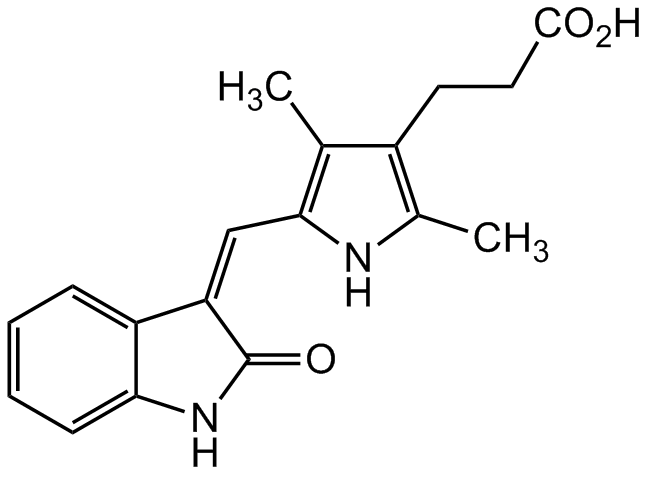
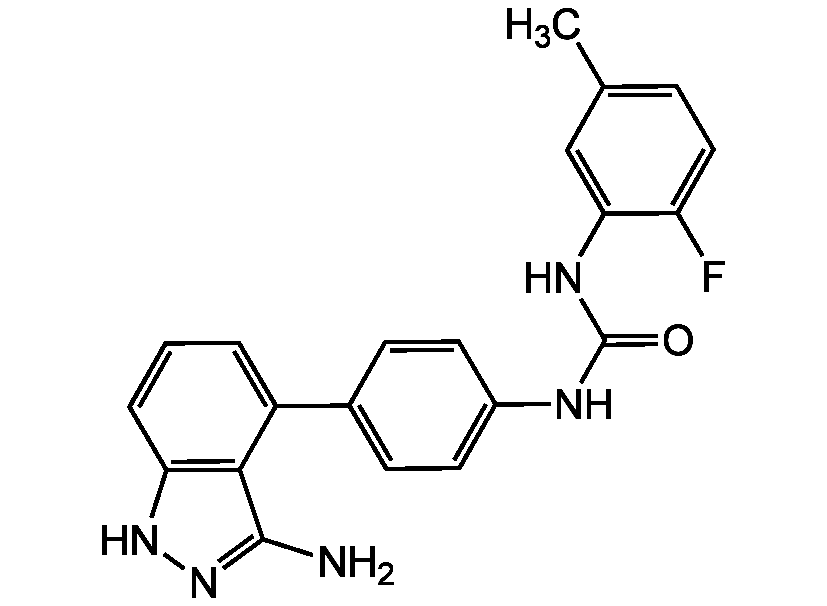
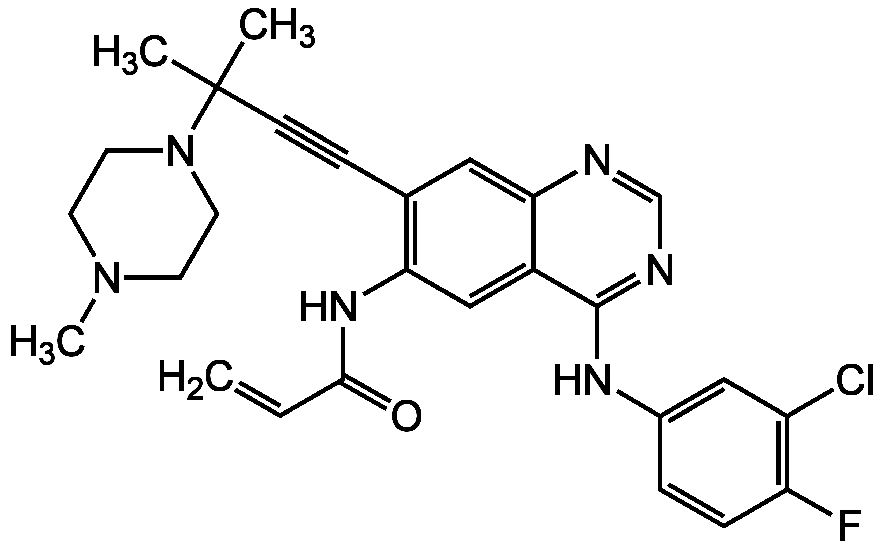
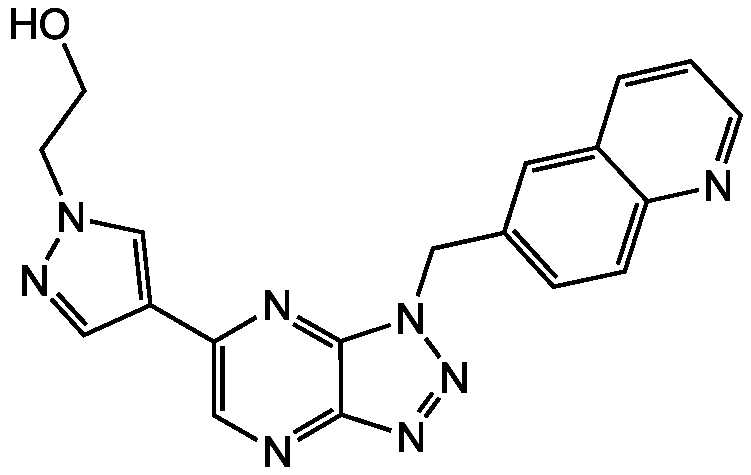
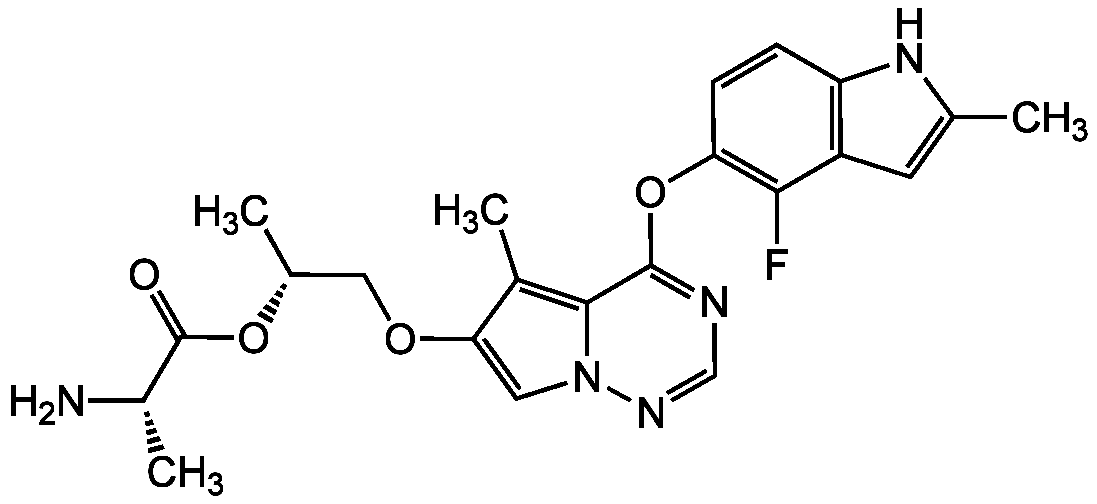
![Cabozantinib [849217-68-1] [849217-68-1]](https://www.targetmol.com/group3/M00/02/BC/CgoaEGY7PFSEYOBaAAAAAGHwrYg290.png)